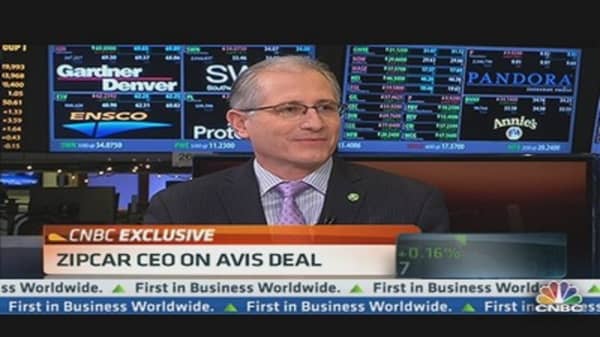

The two had their first business meeting a few short days later, and by May 2000, the first Zipcar was on the road. They talked about their interest in entrepreneurship and conscious consumerism and within a few months Danielson shared her hopes to start a car-sharing service, according to a fascinating profile on The Verge. Co-founders Antje Danielson and Robin Chase became friends on a Cambridge, Massachusetts playground as their kids played together in the summer of 1999. The story behind Zipcar-the car-sharing service bought by Avis for $491 million in 2013-should serve as a cautionary tale about starting a business too quickly with someone you recently met.

Unfortunately, such scenarios can unravel into a nightmare fast. Before you know it, you’re making big plans to start a business together. Chase was beginning to doubt the company could launch on time when she had a breakthrough.It can happen quickly: You meet someone you click with, talk about your passions and goals. Worse, U.S. insurers were uninterested in covering the start-up's vehicles. After financing the first car with Chase's home as collateral, the car leasing companies wanted a $7,000-per-car deposit for each additional vehicle, as this was a business start-up that could fail.

There was an unpleasant surprise when it came to negotiating the car leases. As launch time neared, Chase found the company with just $68 in the bank. As quick as money came in, it disappeared. Their first engineer had to be persuaded to work for equity. Technology costs were substantial and quickly consumed almost the entire amount. In all, Zipcar would raise $75,000 pre-launch, a figure Chase looks back on as laughably low. Related: Startup has Sky-High Aspirations for Roadable Aircraft

The funding was structured as a loan convertible to Zipcar equity once the company's valuation was established in its first venture-capital fundraising round. Instead, the woman turned to her husband and said, "What do you think, honey? Should we invest $50,000 in Chase's company?" They became Zipcar's first funders. You should absolutely do it,'" Chase recounts. "And she said, 'Are you kidding? You could make more money and save so many children's lives if this succeeded. Her daughter knew the family donated some of what it made to children's causes. Chase explained how successful the company could be, and how car sharing might positively impact the planet, but that it would likely mean round-the-clock work hours for a while. The answer came from her 12-year-old daughter, who noticed mom's quiet mood and cornered her in the kitchen one night. For several days she "moped and mulled" around the house, wondering what to do. You've got to sale it up by a factor of three.' We were really shaken by it."Īpparently, the car sharing business wouldn't fulfill Chase's dream of launching a small start-up she could fit around family responsibilities. Chase recalls, "He said, 'Your business plan is way too slow. Instead, he told the women their idea was too big for Cambridge. The pair expected Urban to poke holes in their model, or to say Americans wouldn't take to car sharing.


 0 kommentar(er)
0 kommentar(er)
